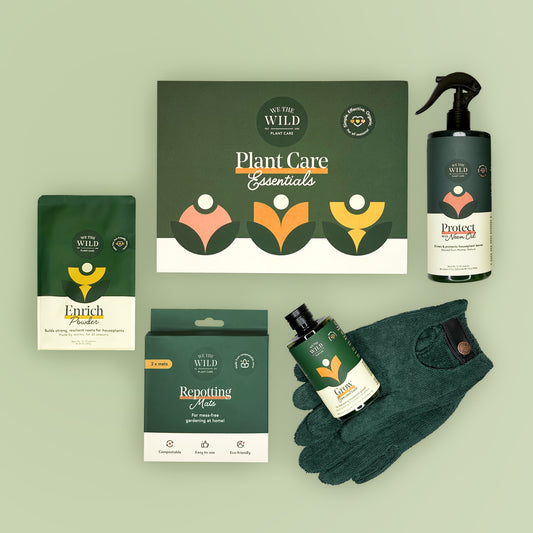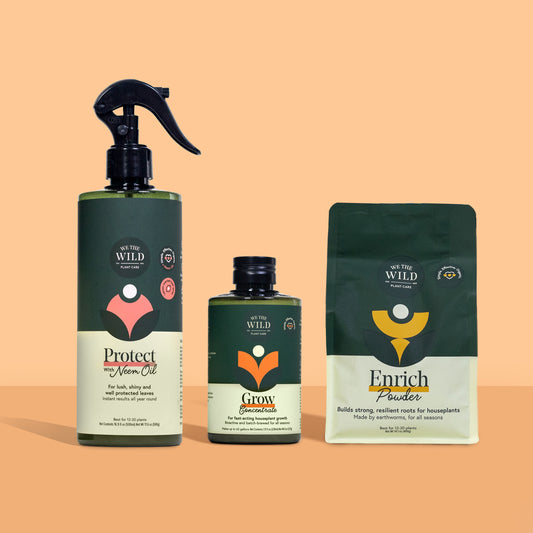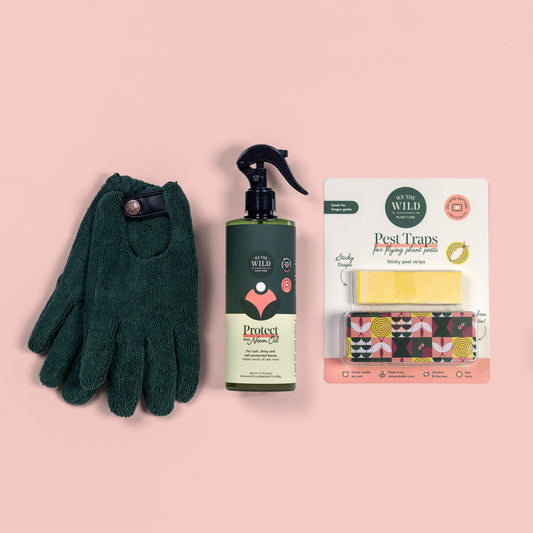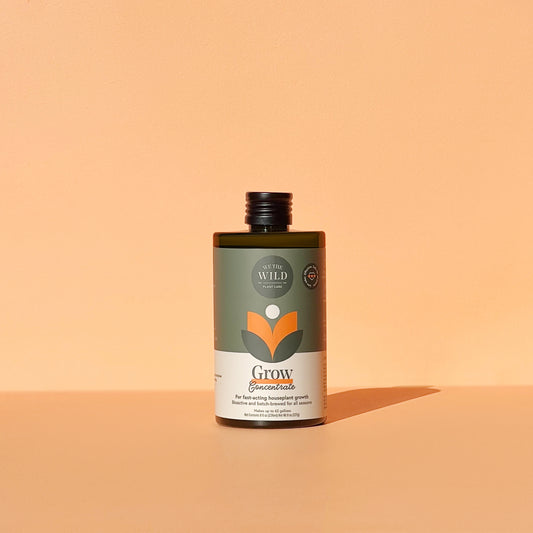Did you know that many houseplants can be dangerous to dogs and cats? We all want some greenery in our home, but if you have a pet, it pays to be aware of the types of plants you're bringing home. Yup, that innocent-looking fern might actually be a secret villain in your pet's story.
But don't worry! We're here to help you navigate the world of houseplants and pets with ease. Read on to dig into why some plants are dangerous for pets, how to spot the bad guys, and what to do if your curious kitty or doggo decides to nibble on a houseplant leaf that they shouldn't.
Why Are Some Houseplants Dangerous For My Pet?
We all love that houseplants have all sorts of cool superpowers—some can clean the air, others can brighten up a room, and a few even help you sleep better! I mean, what's not to love about that! Just as the chemical compounds in plants can make us feel happy, some sneaky cultprits contain chemicals in the leaves and stems that can be harmful (or even deadly) to animals if ingested.

So, why do plants have these toxic traits? Well, in nature, plants need mechanisms to protect themselves from being eaten. Over millions of years, houseplants have developed these defenses by building certain natural compounds in their sap, leaf tissue and flowers that warn animals to stay away, and offer dire consequences to animals that cross their path. Unfortunately, our pets haven’t gotten the memo, so when we bring certain plants home, it can provide greater risk to our domesticated animals like dogs and cats.
How Do I Know if a Plant is Toxic To My Dog Or Cat?
Not all houseplants are out to get your furry friend, but it’s good to be cautious. Here’s a quick guide to help you figure out if a plant is a friend or foe:
-
Do Your Research: if you've found a new houseplant at the store, do a quick search online to check if it's safe for pets. There are also handy apps and websites like the ASPCA’s Toxic and Non-Toxic Plants List that can help. Our Wild Plant experts are always on hand to give you some advice - just drop us a message.
-
Look for Labels On Houseplants: Some plant nurseries offer handy labelling on their plants, to tell you if the houseplant is pet-safe or not. Keep an eye out for these helpful houseplant hints when you're making your next plant purchase.
-
Ask the Experts: if you're buying from a local plant store or garden center, odds are there will be a passionate expert on hand to help you make the right choice. Just holler and ask the question before making your plant purchase.
-
Watch Out for Common Culprits: save this list of the most common toxic houseplants so that you know to stay away:
- Lilies (bad news for cats)
- Aloe Vera (great for your skin, not for pets)
- Snake Plants (aka Mother-in-Law’s Tongue—guess the name fits, huh?)
- Pothos (easy to grow, not so easy on pets)

How Do I Know If My Dog Or Cat Has Eaten A Toxic Plant?
First of all, we are not vets or experts in animal care, so we always recommend reaching out to a vet as soon as you suspect that your pet has ingested a toxic houseplant, or a houseplant that you think may or may not be harmful for pets. We do want to be helpful, so some of these symptoms are the most common sign that your pet has munched on a plant that's not so pet friendly.
- Drooling: If your pet suddenly turns into a slobber machine.
- Vomiting or Diarrhea: These are big red flags. If your pet is throwing up or has the runs, it could be a sign they've eaten something they shouldn’t have.
- Lethargy: Is your usually hyperactive pup acting like they’ve just run a marathon? They might be feeling the effects of plant poisoning.
- Loss of Appetite: If your pet turns up their nose at their favorite treat, something’s not right.
- Tremors or Seizures: These are serious symptoms that require immediate vet attention.
What to Do if Your Pet Eats a Toxic Plant
If you suspect your pet has ingested a toxic plant, don’t panic—but act quickly:
- Call Your Vet: Even if your pet seems fine, it’s best to consult your vet right away. They can guide you on what to do next. There are plenty of emergency vet clinics that can offer assistance, but you should consult a vet as your first action.
-
Remove the Plant: If you catch your pet in the act, get the plant away from them immediately. Ideally in another room that they cannot access.
-
Contact a Pet Poison Hotline: There are pet poison hotlines that you can search for, call and get immediate advice. Many of these are not for profit organizations and could also do with your support, so consider donating! The ASPCA has a 24-hour Animal Poison Control Center you can contact.
What Are The Best Pet Friendly Houseplants?
Prevention is the best course of action when it comes to pets and houseplants. Luckily, there are plenty of pet-friendly houseplants that you can bring home without any guilt. Some great options include:
- Spider Plants: These are tough, easy to grow, and totally safe for pets.
- Boston Ferns: A lush, green plant that's pet-friendly.
- Calatheas: These beauties come in all sorts of colors and patterns, and they’re safe for your pets.
- Areca Palms: Bring a touch of the tropics to your home without putting your pets in danger.





